The Trouble with Play
The more I learn about play, the more troubled I become. For a multitude of reasons.
One of them being that defining play feels like carrying water in a sieve… it all just runs through and just a few droplets are left to the meshed surface and those few drops are what get described as play.
I wonder if part of the problem of defining play is in part because we are using language, terms and concepts that lack complexity. That the “Enlightenment” (an 18th-century intellectual and philosophical movement in Europe that emphasised reason, individual liberty, and scientific inquiry over tradition, superstition, and blind faith; that was also known as the Age of Reason) divided up the way we thought about the world into separate compartments - and suddenly imagination was severed from knowledge, the arts severed from science, and individualism took priority over the traditions that kept community together.
This is not to say that I do not value science or reason, I absolutely do, but no more than I value the arts, play, imagination, community and the rituals that hold us connected to each other and the world - in gratitude, reciprocity and equity.
Play defies science and is science simultaneously. It cannot be tamed by science and presented as a nice little equation that works every time - despite efforts to try. Scientific research can and does contribute towards understanding play but without the aesthetics, rituals, traditions and more it is not enough. It reminds me of the Gregory Bateson when he said “The map is not the territory”
Science creates a map of play through research, observation, evidence collating and analysis but they are very specific maps of specific areas and fails to share the real world complexity and diversity of the whole play landscape. It is reduced to symbols marking where the forest are, the paths are, lines to indicate elevation - the massive sensorial and living complexity of everything that makes up a forest (trees, undergrowth, the animals, the microbes and animals and roots etc etc under the soil, and smells, sounds etc etc etc). In the same way that play is often shared as learning, or development or… when it is all of these things and more - and many of them cannot be measured by science. Play is both measurable and immeasurable. It is both useful and useless. It is both sense and nonsense. And here I keep using opposites - but each time it is a full spectrum of possibilities in between.
Play is that invisible in-between. Not so much the child, the adult or the thing or the space - but what happens between them. The way things behave impact the play just as much as the way the player uses them (human and more than human). We can do the exact same actions as both play and as work - digging can be a chore or a delight - running can be survival or excitement or joy or stress of missing the bus. It is not the action that is play but our feelings, or sense of being.
Play is a must.
As my neuroscientist husband says - humans have a sex drive (like all animals) to ensure the species continues. It biologically hardwired into our very being - to make continuing the species worth it - to entice us. And in the same way play is a drive for us to continue to adapt to the world around us… and depending on the context and individual experiences the way we need to adapt will be radically different. We need to learn how to get about to experience more, to find food, shelter and other survival necessities. We need to learn how to communicate, because community increases survival. We need to learn to remember things to keep ourselves safe. We need to be curious to find more knowledge that enables to adapt. We need to repeat things many times to learn skills, overcome mistake making and to become competent at whatever it is we need knowledge/skill-wise to learn/master to continue our ongoing adaptation story. We need to be flexible so that when we move, or the circumstances change, we can adapt to them. We need to be able to soothe ourselves and heal when we feel overwhelmed. Play helps us with all of this (and more) through releasing feel-good hormones so that we have the motivation to experience and do and practice all of this. And because we are often clueless as to the reason why we want to do something - or why someone else does what they do - we label it as nonsensical and frivolous - instead of being open. Because sometimes it is just about feeling good - because feeling good is just as important as everything else, and I think joy is so vital in our personal ability to make safe choices about ourselves, and informed decisions.
A joyless education, where children are deprived of play, autonomy and learning flow, will result in children not motivated to learn and more easily manipulated by those who do not always have good intentions. People who are deprived of joyful moments, even in the very worst of circumstances, will struggle with hope and to imagine a different future. And maybe for some people this is purposefully done to them as a way to defeat and exploit them. Play, song, dance, theatre, storytelling, art, crafts (textiles, metal, wood etc) are all acts of resistance - and is why they are often the first things limited by fascist and dictatorial leaders.
As part of the Original Learning Approach I want to see play , learning and teaching interwoven throughout the school system. Not play as something other, but as the necessary element for learning, community, well-being and fairness. Play should be harnessed by teachers - not as a tool to control and teach children, but as a tool to learn about the children, their brains and how to be better educators. This can only be done if the teachers are observing children’s play, and that children have adequate time, space and permission to play. This should be something that we work on from every child’s first day alive - being aware of the skills children need to be able to enter play and learning flow both individually and alongside/together with others. That our early years teaching is focussed on these skills. Because if the children can master these skills, learning flow will happen. If they struggle with these skills, because they are not properly scaffolded, afforded the time to master them or afforded the grace to make mistakes, then learning flow will be harder to achieve.
Play is the safe space to make mistakes that will not have negative consequences later in life (some accidents will happen, but on the whole it is safe - Brussoni shared in a lecture I attended - that children would have to play 3 hours every day for 10 years to warrant ending up needing hospital treatment - and that the vast majority of those cases will not have a permanent impact on their lives. Sports are not as safe - because then children are often being pushed beyond their capacity to be a part of a team - while play is much more reliant of the child’s personal rather than the team capacity)
It’s why my definition of play is only joy (where all emotions are experienced within a positive ability to bounce back from setbacks - and the opposite not being sad but depression - where a full range of emotions are experienced, including happiness, but bouncing back from setbacks is harder, and finding motivation to play harder too) and choice (and choice not always being a conscious one - but referring mostly that a person is free from musts).
I keep thinking about play and depression. Because if there is depression instead of joy, is there play? And I look back to my own personal bouts of depression as a teen and remember that there were plenty of pockets of joy scattered throughout. It was not simply monotone depression. Just as people forced to endure war, oppression, exploitation and violence can also experience joy in between the horrors, and despite the horrors. And I think this is so vital. This joy becomes like a beacon of light, or a ray of hope, allowing us to imagine that things can and will change. The joy can, for many, become acts of resistance.
Here are some other posts that connect to this post that you might find interesting
The Yin and Yang of Play
Yesterday, as I was on the underground (to go to a protest to demand the Swedish government took action, not only in the safeguarding of Greta Thunberg taken my Israeli military illegally in international waters, but also to take action to ensure aid to a starving people and demand a ceasefire as first steps towards justice and peace for everyone in the…
Play as a Democratic Act
Play as a democratic act is obvious to me… but I realise that this is not the case for everyone. So I thought I would write this post to explain how I see it.


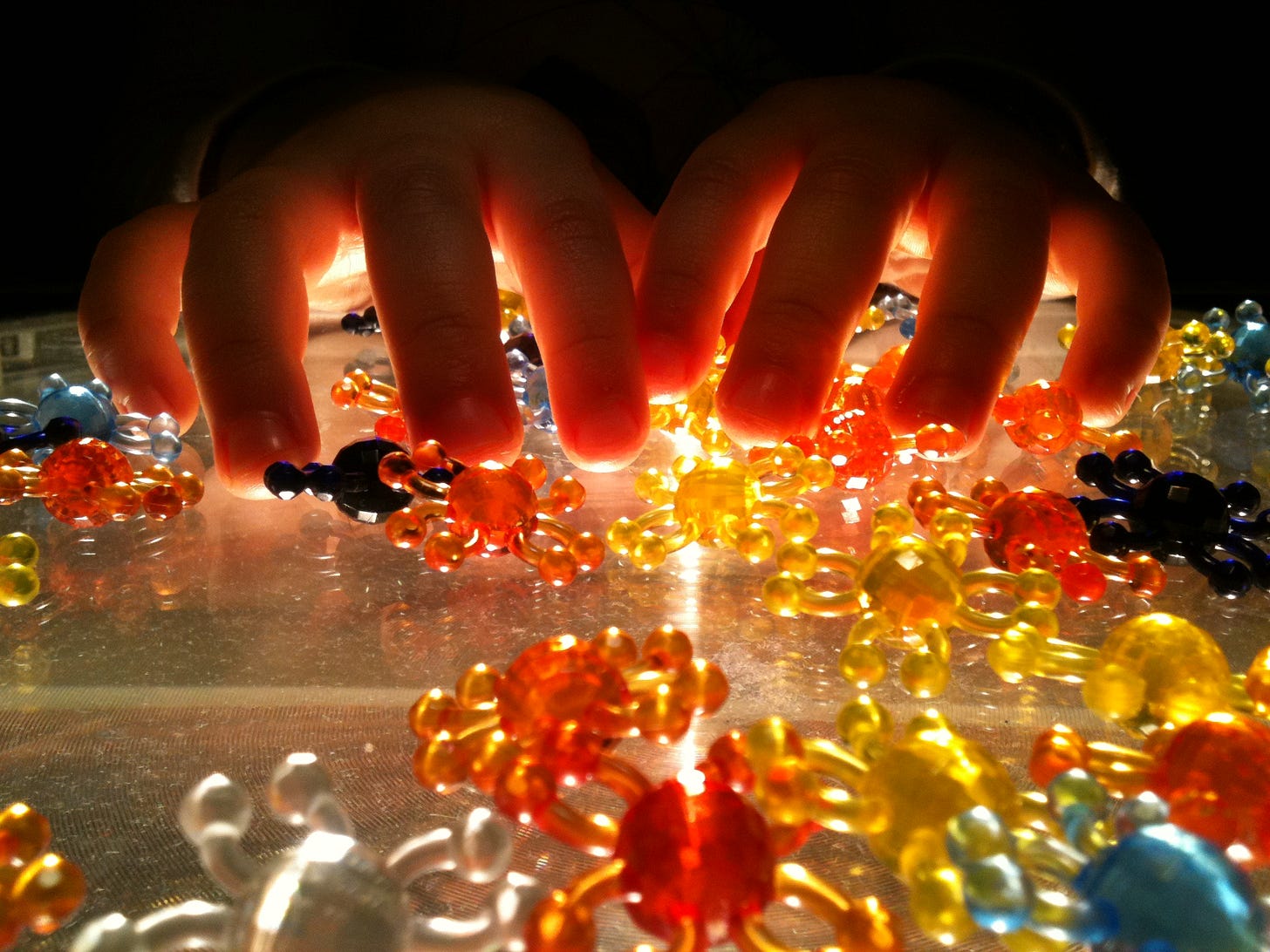
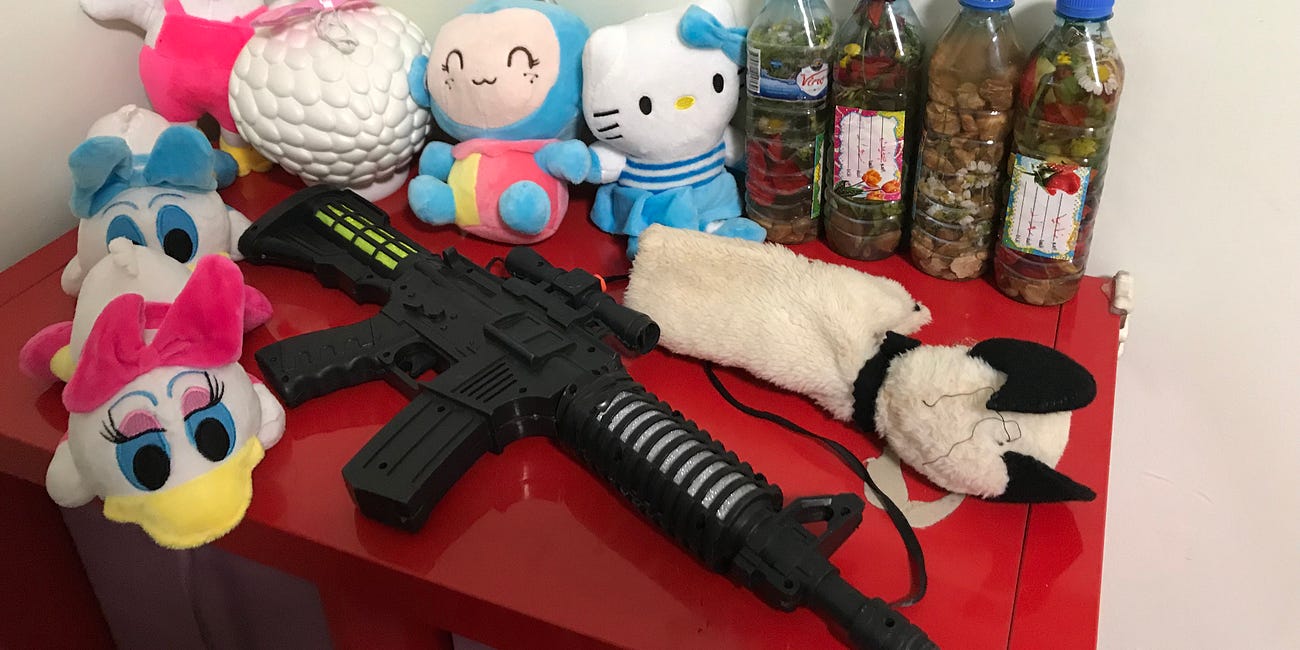
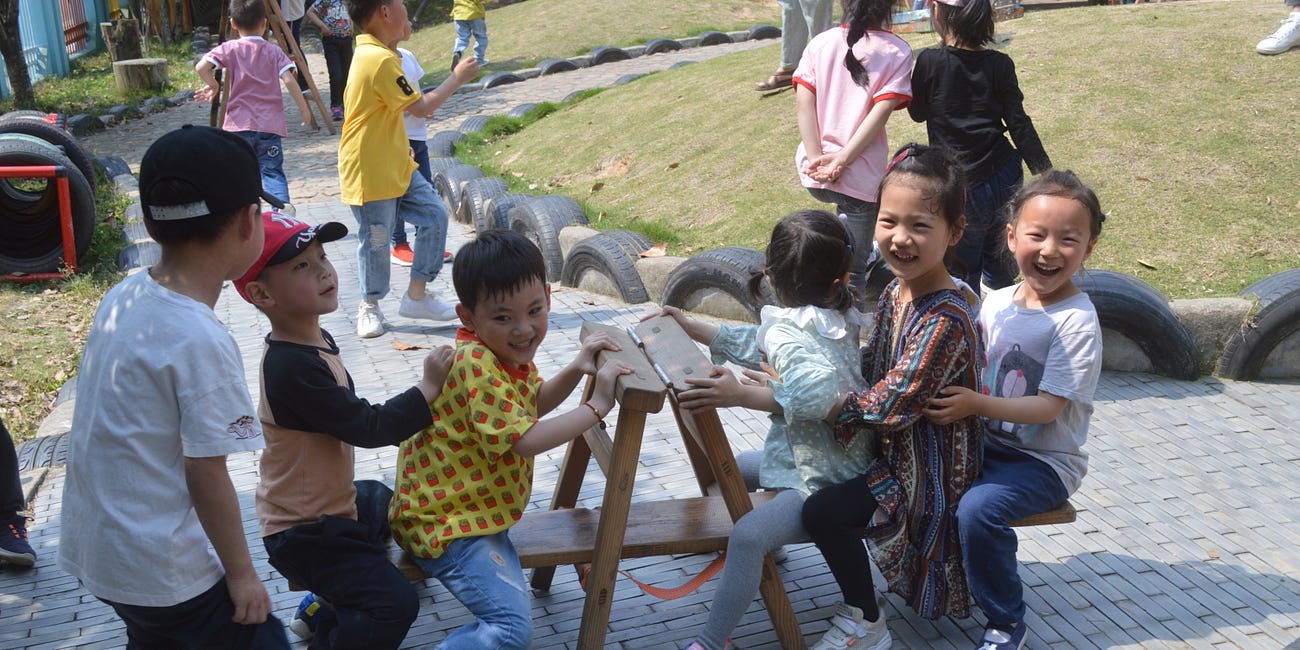
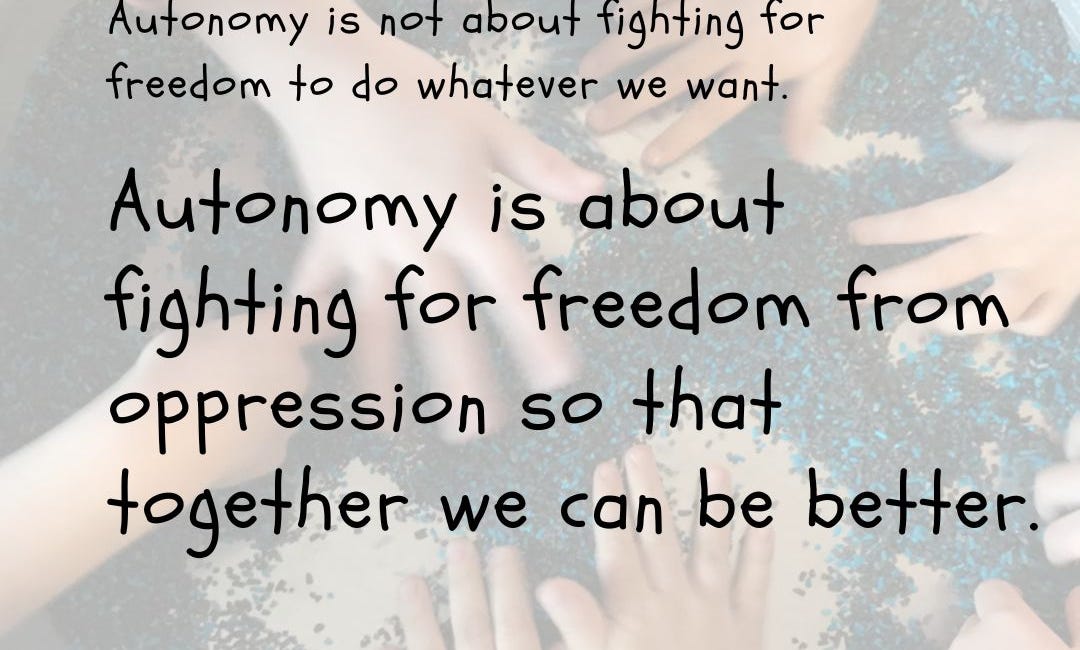
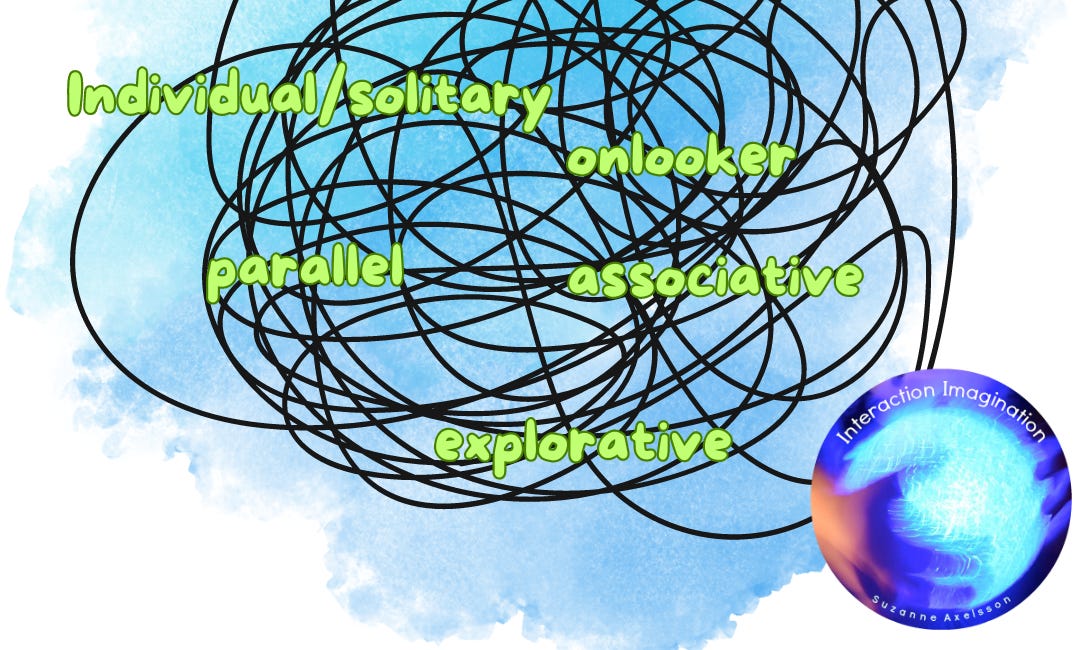
Joy! Yes! The way we resist is through joy. It carries us forward and keeps us from giving up. Joy is our hope and thus we must hold onto it and protect it fiercely. Let us not become complicit. Let us advocate for joy. It is one of the most valuable assets we have.
What a wonderful layout of play and science and all your other thoughts, curiosities, contemplations and explorations. As someone who made playing with children in Nature for over 25 years I can relate to much you have said. However, I have found people that use words well to do the impossible, explain it. Have you checked out Gordon Neufeld's work and passion about play?